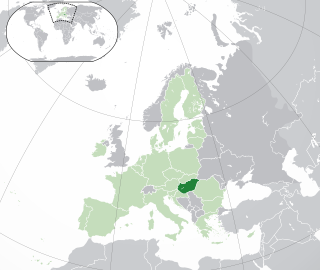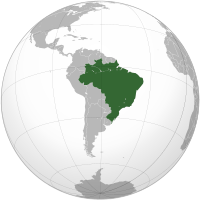Related Research Articles

Same-sex marriage, also known as gay marriage, is the marriage of two people of the same sex or gender, entered into in a civil or religious ceremony. There are records of same-sex marriage dating back to the first century. In the modern era, marriage equality was first granted to same-sex couples in the Netherlands on 1 April 2001.
LGBT adoption is the adoption of children by lesbian, gay, bisexual, transgender (LGBT+) people. This may be in the form of a joint adoption by a same-sex couple, adoption by one partner of a same-sex couple of the other's biological child, or adoption by a single LGBT+ person. Joint adoption by same-sex couples is legal in twenty-seven countries as well as several subnational jurisdictions and dependent territories. Furthermore, some form of step-child adoption is legal for same-sex couples in five countries. Given that constitutions and statutes usually do not address the adoption rights of LGBT persons, judicial decisions often determine whether they can serve as parents either individually or as couples.

Rights affecting lesbian, gay, bisexual, and transgender (LGBT) people vary greatly by country or jurisdiction – encompassing everything from the legal recognition of same-sex marriage to the death penalty for homosexuality.

LGBT people in Hungary may face legal and social challenges not experienced by non-LGBT residents. Homosexuality is legal in Hungary for both men and women. Discrimination on the basis of sexual orientation and sex registered at birth is banned in the country. However, households headed by same-sex couples are not eligible for all of the same legal rights available to opposite-sex married couples. Registered partnership for same-sex couples was legalized in 2009, but same-sex marriage is banned. The Hungarian government has passed legislation that restricts the civil rights of LGBT Hungarians – such as ending legal recognition of transgender Hungarians – and this trend continues under the Fidesz government of Viktor Orbán.
This article contains a timeline of significant events regarding same-sex marriage and legal recognition of same-sex couples worldwide. It begins with the history of same-sex unions during ancient times, which consisted of unions ranging from informal and temporary relationships to highly ritualized unions, and continues to modern-day state-recognized same-sex marriage. Events concerning same-sex marriages becoming legal in a country or in a country's state are listed in bold.
Same-sex marriage in Brazil has been legal since 16 May 2013, following a decision from the National Justice Council, which orders notaries of every state to perform same-sex marriages.

Lesbian, gay, bisexual and transgender (LGBT) rights in Brazil are among the most advanced in Latin America and the world, with LGBT people having marriage rights available nationwide since May 2013. On June 13, 2019, the Brazilian Supreme Court ruled that discrimination on the basis of sexual orientation and gender identity is a crime akin to racism.
Lesbian, gay, bisexual, and transgender (LGBT) affirming religious groups are religious groups that welcome LGBT members and do not consider homosexuality to be a sin. They include entire religious denominations, as well as individual churches and synagogues. Some are composed mainly of non-LGBT members and also have specific programs to welcome LGBT people, while others are composed mainly of LGBT members.

Lesbian, gay, bisexual, and transgender (LGBT) persons in Cape Verde are afforded greater protections than those in many other African countries. Both male and female same-sex sexual activity are legal in Cape Verde. Additionally, since 2008, employment discrimination on the basis of sexual orientation has been banned, making Cape Verde one of the few African countries to have such protections for LGBT people. Nevertheless, Cape Verde does not recognize same-sex unions or marriages, meaning that same-sex couples may still face legal challenges not experienced by non-LGBT residents. Households headed by same-sex couples are still not eligible for the same legal protections available to opposite-sex couples.
This is a list of events in 2011 that affected LGBT rights.
This article is intended to give an overview of the history of LGBT rights in Brazil.

Lesbian, gay, bisexual and transgender people in the Brazilian state of São Paulo enjoy most of the same legal protections available to non-LGBT people. In addition to Brazilian federal law against discrimination and in favor of unregistered cohabitation, state-level precedents have allowed for same-sex marriages to be legalized on conditional bases in the 2010s.

Lesbian, gay, bisexual, and transgender (LGBT) rights are liberal in Bahia. Homosexuality and same-sex marriage are legal in the state.
Lesbian, gay, bisexual, and transgender (LGBT) people in Piauí, a state of Brazil located in the country's Northeast Region enjoy many of the same legal protections available to non-LGBT people. Homosexuality is legal in the state.

Lesbian, gay, bisexual, and transgender (LGBT) people in Alagoas, Brazil enjoy many of the same legal protections available to non-LGBT people. Homosexuality is legal in the state.
Lesbian, gay, bisexual, and transgender (LGBT) people in Ceará, Brazil enjoy many of the same legal protections available to non-LGBT people. Homosexuality is legal in the state.
Lesbian, gay, bisexual, and transgender (LGBT) people in Espírito Santo, Brazil enjoy many of the same legal protections available to non-LGBT people. Homosexuality is legal in the state.
Lesbian, gay, bisexual, and transgender (LGBT) people in Mato Grosso do Sul, Brazil enjoy many of the same legal protections available to non-LGBT people. Homosexuality is legal in the state.
Lesbian, gay, bisexual, and transgender (LGBT) people in Rondônia, Brazil enjoy many of the same legal protections available to non-LGBT people. Homosexuality is legal in the state.

Lesbian, gay, bisexual, and transgender (LGBT) people in the U.S. Virgin Islands face legal challenges and discrimination not faced by non-LGBT people. Same-sex sexual activity has been legal since 1985, but the Virgin Islands provides no protection against discrimination for LGBT residents. Following the Supreme Court's ruling in Obergefell v. Hodges on June 26, 2015, which found the denial of marriage rights to same-sex couples unconstitutional, same-sex marriage became legal in the islands.
References
- ↑ "Marriage open to gay couples in Sergipe" (PDF) (in Portuguese). 5 July 2012. Retrieved 26 February 2013.
